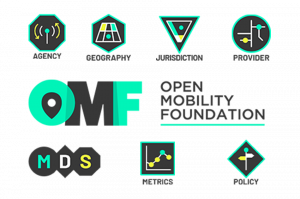Would you like to schedule a demo or ask us a question? Please fill out the form below and we will get back to you as soon as possible.
Mobility Services
Data Hub
The Mobility Services Data Hub is the Platform’s main data housing and processing component that acts as a data hub for business services, software tools, suites and applications. It is a necessary component for any MDS implementation, also known as MDS Core. Once you have this core layer, any application – ours or any third parties – will be integrated on top of it to perform their respective functions. There is no limit on how much data it can store and process or how many tools or apps it can accommodate.
And the best part is – all data is processed in a safe and secure manner adhering to the most stringent standards for data safety and security. For example, coordinates truncation, intelligent record suppression, and data aggregation are applied by the Data Hub directly at the database level. Fine-grained access system is also supported to accommodate the specific roles of city staff and different level of data access corresponding to those specific roles.
Benefits and functionalities of the data hub
Our Data Hubsupports the vast majority of open source and proprietary APIs to connect to both private and public mobility providers directly. Currently, we support such data standards as MDS, GTFS, GBFS and OCPI, and can accommodate their future releases as well. Once mobility providers are connected, our Data Hub allows for 2-way data and information flows with the city in full transparency, while auditing data quality and data latency in real time.
The Data Hub also performs and executes calls to and flows of data between business services and software tooling suites, such as our Mobility Manager, Parking Manager, Smart Patrol, MaaS applications, routing systems, payment processing, etc.

Unique real-time data auditing feature
The Mobility Services Data Hub gives cities an extremely powerful data auditing tool to constantly verify data quality that is being shared by mobility operators. Indeed, obtaining the data is not enough. It is crucial that the data that is being reported accurately and timely. Our solution natively integrates data compliance metrics which will allow cities to monitor mobility operators’ data latency and anomalies in real time, no matter which applications are being used by cities – Mobility Manager, Parking Manager, Smart Patrol or MaaS.
Unlimited capacity and data storage
The Data Hub is built on cloud architecture to ensure full scalability, especially when it comes to its data storage capabilities. The storage capacity is progressively increased consistently as more data is collected by the Data Hub over time. This ensures that the Platform will not lose any data and will not underperform due to any data storage limitation. In addition, our Platform is operated with best-in-class data management technologies and guarantees maximum scalability and flexibility.
Multi-juridiction management
Our Mobility Services Data Hub offers “multi-jurisdiction” feature to let users from different organizations access the Platform simultaneously. This allows districts, boroughs or neighboring municipalities in a region to have access only to their dedicated data environment and process data within their authority limits. This applies to all business services and tools dealing with areas, reports, policies and their violations.


Full MDS Compliance
Data processing remains a highly sensitive subject. That is why adhering to the MDS framework and its data protection principles is essential when it comes to processing mobility data. As one founding members of the Open Mobility Foundation (OMF) Technology Council, we ensure that we are fully up to date with all MDS developments and that all our offerings are fully compliant. Being a private member of the OMF also allows us to contribute and have a voice in shaping the future evolution of the MDS and other open standards.
